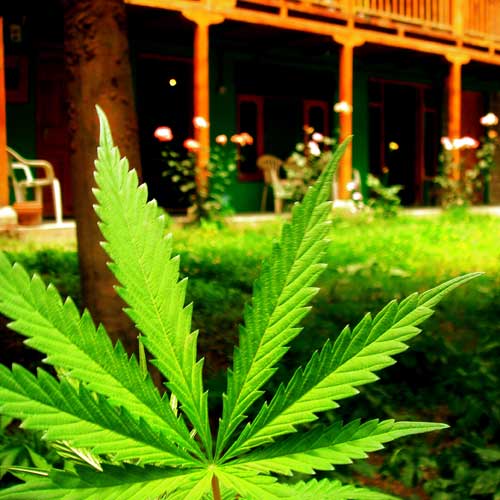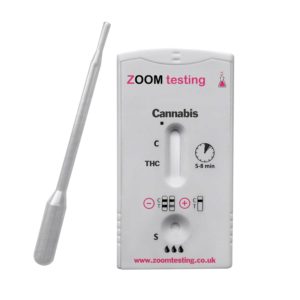Frightening Study Results On The Strength Of Cannabis In Europe Over The Past Eleven Years
The study mentioned here was carried out by researchers from University of Bath and King’s College London and is the first ever study to monitor the changes and trends in Cannabis in Europe. The frightening discovery was that the potency of Cannabis in Europe has doubled over a period of just 11 years! Dr Tom Freeman from the Department of Psychology at King’s College London and University of Bath led the study, the results of which were published in the appropriately-named journal, Addiction.
The Study
The researchers collected data for the EMCDDA — the primary monitoring centre in Europe that looks at drugs and addiction — across 28-member states of the European Union, including Turkey and Norway, and their estimate is that upwards of 24 million Europeans consumed cannabis in some form over the past 12 months. This equates to more than 7% of the adult population in Europe. Globally, it is estimated that more than 190 million adults consume cannabis, in a variety of markets ranging from commercialised legal sale through to heavily sanctioned prohibition.
The outcome of this study is concerning because this jump in potency can have dangerous consequences for users of Cannabis. The study revealed that both herbal cannabis and cannabis resin have become disturbingly stronger and more potent.
Why Are The Study Results So Worrying?
THC, which stands for tetrahydrocannabinol, is the primary psychoactive ingredient in herbal Cannabis, and there has been an increase in THC from approximately 5% in the year 2006 to a worrying 10% in the year 2016. It’s the THC in Cannabis that’s been linked to psychosis. However, even though the concentrations of THC rose rapidly in Cannabis resin from 10% in 2011 to 17% in 2016, the concentrations in herbal cannabis were largely stable between the years 2006 and 2011. This means that, in Europe, cannabis resin is now a much more potent product. The increase in the potency of Cannabis resin is believed to be due to improved production methods in Europe and Morocco.
So, while we’re now seeing an increase in THC levels, the level of CBD (which stands for cannabidiol) has either stayed the same, or reduced. This is concerning because it’s believed that CBD in Cannabis resin does offset some of the negative effects.
THC And CBD: The Differences
Both THC (tetrahydrocannabinol) and CBD (cannabidiol) are derived from the cannabis plant. Both form part of the cannabinoid group of compounds found in most strains of marijuana, hashish, and hash oil. The high euphoric feeling typically associated with marijuana use is due to the THC, which creates the sensations of anxiety and euphoria. CBD is not psychoactive and actually decreases THC’s effects. In fact, it’s believed that CBD reduces inflammation and anxiety.
It’s CBD that makes Cannabis safer for users by offsetting many of THC’s most dangerous effects, like memory impairment and paranoia, without diminishing the effects that Cannabis users are seeking. This rise in THC and stable or reducing CBD levels is cause for concern, because Cannabis has now become potentially more harmful.
While THC is known for its psychoactive effects, CBD is more commonly used for medicinal purposes. It has been found to be effective in treating a range of conditions such as anxiety, epilepsy, chronic pain, and even cancer. Unlike THC, CBD does not produce a high and is therefore legal in most countries, whereas THC is still illegal in many places.
The way THC and CBD interact with our bodies is also different. THC binds to the cannabinoid receptors in our brain and nervous system, while CBD interacts with other receptors in our body such as serotonin and adenosine receptors. This is why CBD can have a calming effect on our bodies and can even improve our sleep, whereas THC can often cause anxiety and disrupt our sleep patterns.
How Much Does Cannabis Cost?
Between the years 2006 and 2016 there was an increase in the price of herbal cannabis from €7.36 to €12.22 per gram, while the price of cannabis resin over the same period increased from €8.21 to €12.27. Police seizures in the UK suggests that, while THC levels in herbal cannabis stayed relatively stable between 2006 and 2016, levels of cannabis resin have risen sharply.
Unfortunately, there is not a lot of information available on the price of cannabis in the UK since the COVID-19 pandemic. However, based on the information provided in the above study, it is likely that the price of cannabis has continued to increase over the past few years. This is due to a combination of factors, including the increased potency of cannabis products, improved production methods, and higher demand from consumers.
It is worth noting that the illegal nature of cannabis in the UK means that prices can vary significantly depending on the region, the quality of the product, and the dealer. However, the average price of herbal cannabis in the UK is believed to be around £10 per gram, while the price of cannabis resin can range from £4 to £12 per gram depending on the quality.
It is important to remember that buying and selling cannabis is illegal in the UK, and doing so can result in serious consequences including fines, imprisonment, and a criminal record. Additionally, the increased potency of cannabis products means that they can be even more dangerous than before, leading to a range of physical and mental health problems for users.
Overall, there is still much research to be done on the impact of cannabis on society, both in terms of its potency and its price. However, it is clear that the illegal nature of the drug means that it is often overpriced and dangerous, and users should be extremely cautious when considering buying and using cannabis products.
The Rise Of Cannabis Tourism
As cannabis laws relax in some parts of the world, we’re seeing a new trend emerge: cannabis tourism. From Amsterdam’s famous coffee shops to Colorado’s “green tours,” travellers are flocking to destinations where they can legally light up.
But it’s not just about getting high. Many tourists are curious about the plant’s history, cultivation, and medicinal properties. They’re visiting cannabis farms, taking cooking classes, and even indulging in cannabis-infused spa treatments.
This boom in cannabis tourism brings both opportunities and challenges. While it’s boosting local economies, there are concerns about public safety and the potential for abuse. As the industry grows, we’ll likely see more regulations and guidelines to ensure responsible tourism.
If you’re thinking of joining the green rush, remember: what’s legal at your destination might be illegal back home. Always research local laws and consume responsibly. After all, the goal is to expand your mind, not end up behind bars!
Conclusion
Doctor Tom Freeman said that these findings show that cannabis resin has become a more potent and better-value product, and that while the study shows THC increasing alongside decreasing or stable CBD levels, cannabis has potentially become more harmful to users. Obviously, it’s difficult for policymakers to target these changes, however Dr Freeman believes that one option might be to use regulation to control the CBD and THC levels in herbal cannabis.
Photo Credit: “Veer Guest House” (CC BY 2.0) by PabloEvans
Zoom Testing is a leading UK drug testing company and a supplier of Drug Test Kits.
This post was originally published in 2019. It was last updated in July 2024.






